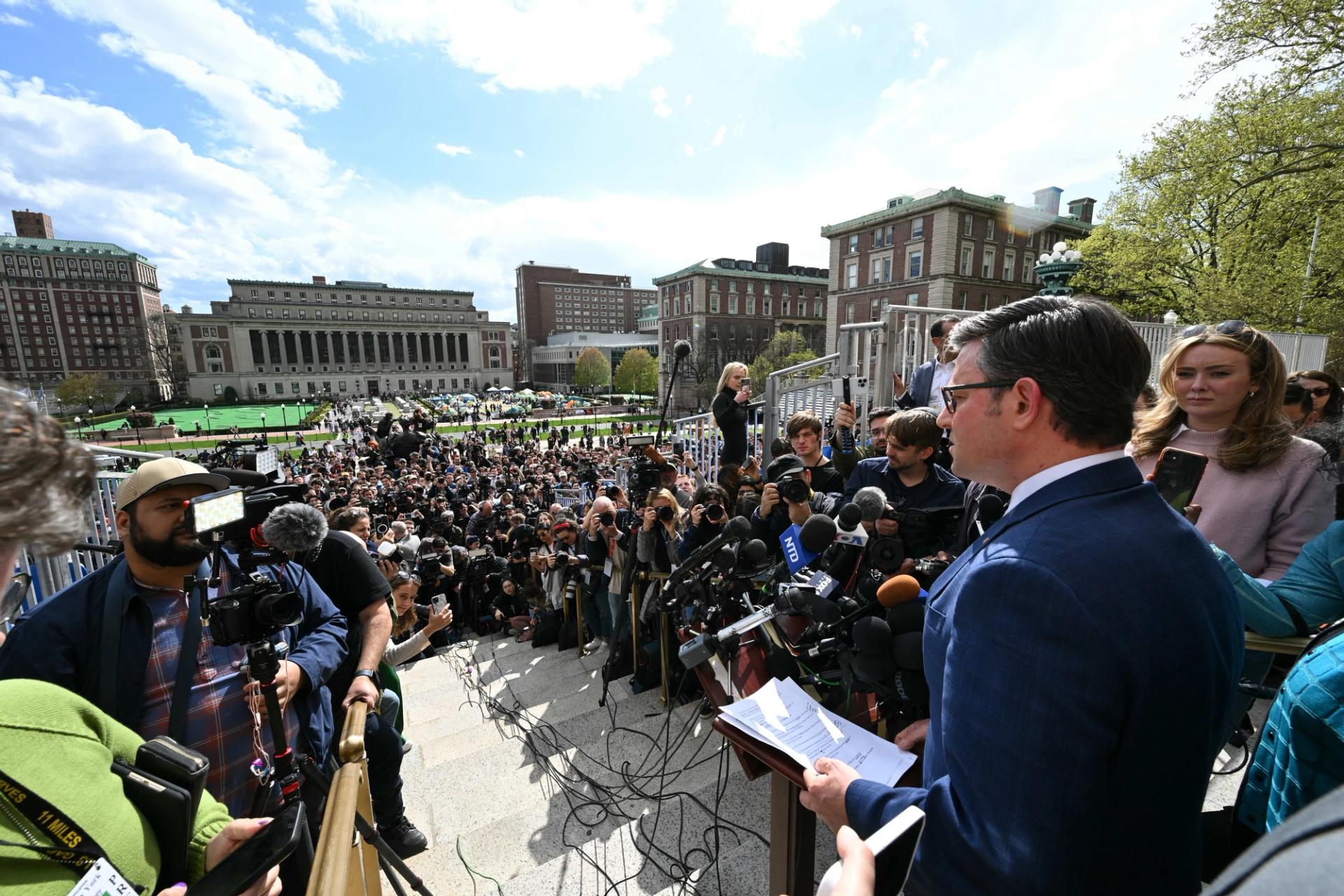The News
House Speaker Mike Johnson on Wednesday used a speech at Columbia University to reiterate his calls for the university’s president to resign “if she cannot immediately bring order to this chaos.”
Johnson accused Nemat “Minouche” Shafik of failing to respond to antisemitism on Columbia’s campus, after pro-Palestinian activists established an encampment to push the school to divest from pro-Israel companies and causes.
Columbia’s encampment kickstarted a wave of similar protests across the nation, with at least 25 such camps of varying sizes reported so far including at the University of California, Berkeley, Yale, Brown and Harvard, leading to suspensions, expulsions, and even arrests.
Some Jewish students at Columbia have reported being harassed by pro-Palestine activists and said they fear for their personal safety. On Monday, Shafik said the school would switch to a hybrid learning model with remote classes, noting that “over the past days, there have been too many examples of intimidating and harassing behavior on our campus.”
Johnson condemned Shafik for using the hybrid model to “discriminate” against Jewish students. “They’re not allowed to come to class anymore for fear of their lives,” he said.
SIGNALS
Universities struggle to balance free speech and safety
Universities across the nation are struggling to balance students’ right to free speech with safety concerns. Schools that were initially more lax, including Columbia, have started cracking down on student protesters, leading to suspensions, expulsions, and arrests. The executive director of the New York Civil Liberties Union, which is representing arrested Columbia students, said that calling the police on nonviolent student protesters “undermines the standing of the university in the eyes of a broad swath of the population as a place of free, open, and robust dialogue and debate.”
But encampments also put administrators in a tough position. Shafik has said that while she understands students are experiencing moral distress over the Israel-Hamas war, “we cannot have one group dictate terms and attempt to disrupt important milestones like graduation to advance their point of view.”
Republicans position themselves as the party of safety for Jewish students
Republicans are attempting to seize the moment to position themselves “as the political party concerned with the safety of Jewish students,” The New York Times reported. Republican lawmakers such as Johnson have sought to put pressure on the academic left, saying “wokeness” on liberal campuses has gone too far and using high-profile congressional hearings to grill administrators about the rise of antisemitism on their campuses.
Some Jewish faculty have pushed back on that characterization, saying that the Republican-majority House Education Committee is “leveraging antisemitism in a wider effort to caricature and demonize universities as hotbeds of ‘woke indoctrination’” and raising concerns about Congress getting involved in how private universities are run.
This marks a new age of student activism
The current campus demonstrations stand out from past student activism, because students are “more skeptical, more influential, and simultaneously more vulnerable than ever,” The Chronicle of Higher Education reported. Unlike student protests against the Vietnam War, this wave concerns a conflict between two foreign governments, even if the US is funneling huge sums to support Israel’s defense. The age of social media has also changed how students protest, making it easier to draw a crowd but opening up activists to privacy concerns as images of protests are posted online — leading in part to a sharp rise in masking.
Universities’ responses to student protests have also shifted. Suspensions and expulsions “didn’t used to be a tactic,” said Rosy Fitzgerald of the Institute for Middle East Understanding, a nonprofit that is tracking how schools are responding to student activists. “But now we’re seeing that as an immediate response.”

